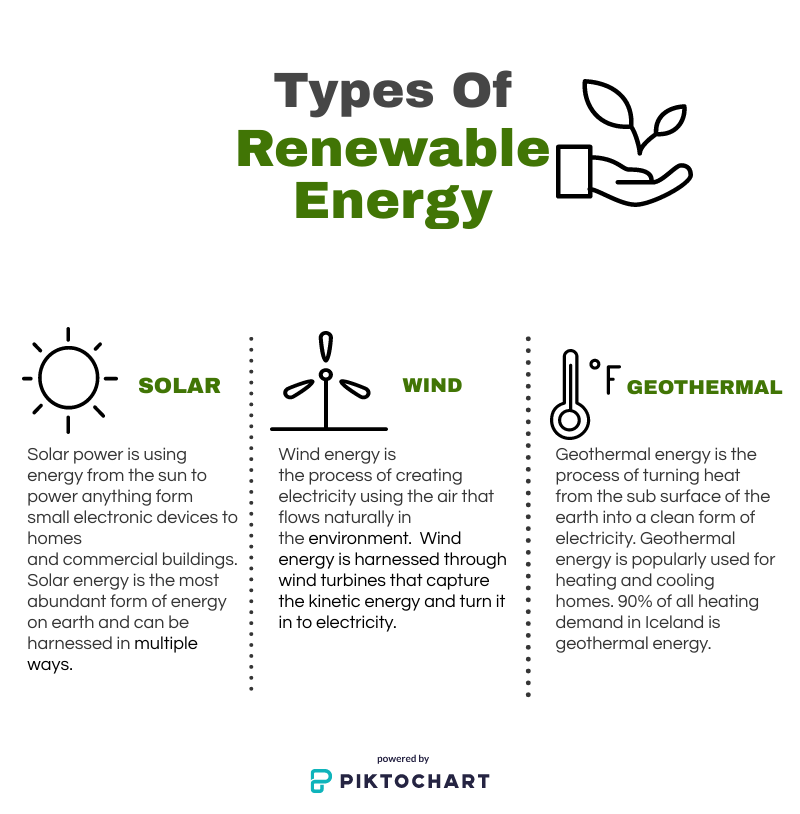Energy of the future
The importance of using renewable sources in today’s society
Info-graphic by Annabelle Harshbarger
This info-graphic shows three popular forms of renewable energy and how they are harnessed.
December 20, 2019
When flipping a switch, most probably don’t think about where the energy is coming from. Most energy in the world comes from nonrenewable sources, the use of these sources has many negative impacts on the environment.
Nonrenewable energy is energy such as fossil fuels, oil, gas and coal. These sources are only available in limited amounts and take an eternity to replenish. Using nonrenewable resources takes a toll on the environment by polluting the air, land, and water. One of the biggest impacts of nonrenewable energy is the emission of greenhouse gasses which act as a blanket that traps heat in the atmosphere.
According to the United States Environmental Protection Agency, in 2017, 27% of all greenhouse gas emissions come from the combustion of fossil fuels to generate electricity.
The use of nonrenewable energy not only negatively affects the environment but public health. According to National Geographic, the pollution caused by coal and gas emissions can cause long term health complications like heart disease, lung cancer and respiratory diseases such as emphysema.
Switching to renewable energy would help to reduce greenhouse gas emissions as well as improve public health. Renewable energy is using natural sources that are constantly being replenished. For example, solar and wind energy can be used forever, even if availability depends on the weather and time. Renewable energy is also cleaner with little to no negative impacts on the environment and public health. Renewable energy does not cause any greenhouse gas emissions making it a better option for the environment.
While many nonrenewable sources can only be found in certain areas, sources such as solar, wind and geothermal energy can be used anywhere in the world. These renewable resources can be used to generate electricity in parts of the world without access to nonrenewable resources.
Many clean forms of energy can be used to power homes and businesses. Installing solar panels to power homes and businesses could cut down on the use of nonrenewable sources. Solar energy is using energy from the sun to convert into thermal or electrical energy. Solar energy is the cleanest form of energy with no negative impacts on the environment. It can be used to power anything from small electronic devices to houses and commercial businesses in an energy-efficient way. Solar energy is also cost-effective. According to Science Alert, between 1980 and 2012, the price of solar panels fell 97%.
Renewable energy is also more reliable and may be able to offer relief from blackouts after storms. For example, after Hurricane Sandy, the residents of Long island used solar-powered generators to charge phones, heat food, and other critical activities.
The pros of renewable energy show why switching to it would be so beneficial for today’s environment. We have the resources as well as the technology to switch to renewable energy to power homes and businesses and not only is it good for the environment but it is also cost-effective.







